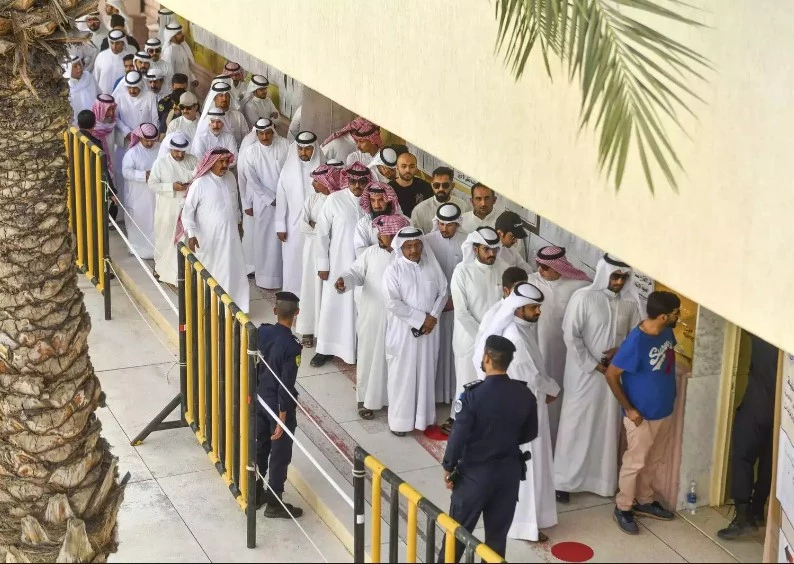Kuwaitis drive push for political change

Stay tuned with 24 News HD Android App

Inside Kuwait's national assembly, 41-year-old lawmaker Dawood Marafie is a fresh face, determined to live up to the hopes of a younger generation exhausted by perpetual political turmoil in the Gulf state.
He is among 12 newcomers to the legislature, most of them young reformists, following the election in June -- the seventh in just over a decade -- in which an Islamist-led opposition reaped the biggest spoils.
The new faces do not coordinate action or work as a cohesive bloc, but most share the goal of pushing for policy improvements, particularly on issues related to youth.
"I was pushed to enter the political arena" by the protracted tug-of-war between parliament and cabinet that has left the country in a state of perpetual stagnation, said Marafie.
Before joining parliament, "I didn't have a political affiliation," said Marafie, who worked in the corporate world for years before switching to politics.
"What matters is competence," he told AFP from his office, surrounded by assistants dressed in white dishdasha robes and matching ghutra headdresses.
Kuwait -- a conservative country where sovereign powers remain concentrated in the hands of the ruling Al Sabah family -- is home to the most active and powerful parliament in the Gulf.
But repeated standoffs between elected lawmakers and cabinet ministers installed by the ruling family have stymied development efforts and scared off investors.
While its neighbours the United Arab Emirates, Saudi Arabia and Qatar have managed to grow their economies, Kuwait has lagged far behind, forcing some like Marafie to seek to chart a new path forward.
- Radical change -
Following a succession of resigning governments and dissolved parliaments, Kuwait's current cabinet is its fifth in a year.
The latest cabinet, formed in mid-June, promised "positive cooperation" with the national assembly.
The political deadlock has delayed necessary reforms and blocked development projects, leaving infrastructure and education in disrepair and much of the population disgruntled.
Even with the old guard still at the helm, Marafie said he is driving a youth-focused agenda that prioritises the environment, housing, and support for small and medium-sized enterprises.
He believes that technological development and training is key to meet the "needs of the future", in a country where half of the estimated population of four million is under the age 35.
Marafie is "confident" in his plans.
But he cautioned that reforms require a "parliamentary consensus" -- a tall order in a 50-member assembly that includes several Islamists and only one woman.
For Shaikha Albahaweed, an independent journalist, a more radical approach is needed.
"The whole political system needs to be amended," she told AFP, echoing a desire for change that is widely held by younger Kuwaitis who have grown disenchanted with the political establishment.
- 'Running in circles' -
With cabinet ministers selected by the ruling family, lawmakers are the only elected representatives in the country.
But corrupt elites, the absence of political parties and costly legislative campaigns make for a political climate that favours powerful families, Albahaweed said.
Kuwait's powerful opposition has long been dominated by Islamists, and their constant wrangling with the cabinet has left little room for other forms of representation.
"There must be deputies representing us who are able to change the system," Albahaweed told AFP on the sidelines of a symposium on women.
Only with major systemic changes can the Gulf state achieve "better representation not only of women but also" members of different social classes, said the 34-year-old, wearing a necklace that reads "feminist".
"But because the system is broken, we cannot get people to represent us," she added. "We are running around in circles."
The last election saw only one out of 15 female candidates voted into office, according to Haifa al-Mousa, a member of the Kuwait Women's Cultural and Social Society, an organisation established in 1963.
There is "a war against women in Kuwait, unfortunately, led by fanatical currents," she told AFP, criticising the country's "male-dominated society" for pushing women to the sidelines.
But even with the odds stacked against them, al-Mousa believes women should still push back.
"We have to trust in ourselves and say that in the end, our rights will prevail."
